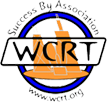
Author Archive
New Form of Fraud Targets Wire Transfer Instructions in Real Estate Transactions
Most Cook County real estate attorneys are affiliated as title agents with various title insurance companies. As such, they are now subject to a new form of fraudulent activity. Under this latest fraud, hackers are targeting consumers and stealing earnest money for upcoming transactions.
It has been reported recently that borrowers have received emails allegedly from a title agent attorney providing wire information to transmit earnest money for the transaction. The hackers apparently intercept emails from title agencies or title agent attorneys providing wire transfer information for borrowers to transmit earnest money for an upcoming transaction. The scammers then alter the title company’s bank account information with their own. The unsuspecting borrower wires their down payment directly to the fraudsters. These emails appear to be genuine and contain the title agency’s or attorney’s email information and/or logos and branding.
In these scams, the hackers monitor email traffic of the title agency, attorney or customer and gain knowledge of the timing of the upcoming transaction. While these scams target earnest money, an altered email could conceivably be used to cause misdirection of funds by any party in the transaction, including the title agent themselves. Because of this, Logan Law, LLC will be using encrypted e-mail or facsimile transmission to send future wire transfer information.
Feel free to contact an Illinois attorney experienced in handling all aspects of real estate closings for both buyers and sellers at Logan Law, LLC if you have questions about sale of your Chicago area real estate or any other area of the laws governing the purchase or sale of real estate.
First District Appellate Court Decision Casts Doubt on Ability to Regulate Leasing of Units by Rule Rather than Declaration Amendment
The February 2016 decision of the First District Illinois Appellate Court in Stobe v 842-848 West Bradley Place Condominium Association has cast some doubt on the ability of an Illinois condominium board to limit leasing of units through its rule making authority. Article VII of the declaration in Stobe covered the “sale, leasing or other alienation” of units. It contained a statement that if a proposed unit tenant agreed to abide by the declaration, the board’s rules and the Condominium Property Act, the board would have no right of first refusal.
The leasing article of the Stobe declaration did impose specific restrictions on leasing for hotel or transient purposes or for terms of less than six months and imposed limitations on leases of parking spaces. The article did not expressly refer to the right of the condominium board to regulate leasing by rule. The court then stated: “With that said, article VII did not expressly state that owners had the right to lease their units either.”
The appellate court in Stobe affirmed the trial judge’s grant of summary judgment striking down the attempt of the condominium board to restrict leasing by rule, interpreting the declaration’s intent to be that owners had the right to lease their units without restrictions other than those specifically enumerated in the declaration. The Stobe court said: “As stated, the declaration expressed certain limitations on leasing. If owners had no right to lease their units, the enumerated limitations would be meaningless.”
The court went on to point out: “The article on leasing did not specify that it was subject to further regulation by the Board, unlike other provisions in the declaration that did. While this omission would not alone require a determination that owners possess leasing rights, the declaration’s intent is clear when considered in its entirety: Unit owners have the right to lease their units subject to the declaration’s limitations.”
Feel free to contact a Logan Law, LLC condominium attorney, if you have any questions regarding the ability of your condominium board to impose rules restricting leasing or if you need assistance or advice regarding other areas of condominium law.
Illinois Condominium Property Act Amended Regarding Distribution of Proposed Annual Budget
A quirk of Illinois Condominium law has long prevented sending notice of the meeting at which an Association’s annual budget would be considered at the same time as the proposed annual budget was sent to unit owners. This is because one section of the law provided that the annual budget had to be sent out at least 30 days in advance of the meeting while another section required that the notice of meeting could not be sent out more than 30 days in advance. Effective June 1, 2016, this will no longer be the case, as the Illinois Condominium Property Act has been amended to provide that the proposed budget can now be distributed to unit owners at least 25 days in advance.
Logan Law, LLC condominium attorneys have represented Illinois condominium associations for forty five years and have a depth of experience and knowledge of Illinois condominium law. Feel free to contact a Logan Law, LLC attorney whenever you need an attorney experienced in condominium or community association law.
Illinois First District Appellate Court Sanctions Use of Move In Fees For Chicago Leases
The Chicago Residential Landlord and Tenant Ordinance (“RLTO”) contains many mandatory requirements as to the holding of security deposits by landlords to which the ordinance applies. Any violation of those provisions, even an unintentional or minor violation, comes with a penalty of double the entire security deposit and makes the landlord liable to pay the tenant’s attorney fees for enforcement. Because of this, it has become increasingly common for Chicago landlords to cease the formerly widespread practice of requiring a security deposit, typically in the amount of one month’s rent, for every lease. Many landlords instead are now requiring a non-refundable “move in” fee, usually in the amount of a fraction of a month’s rent.
The recent Illinois First District Appellate Court decision in Steenes v MAC Property Management sanctions the new move-in fee practice. In Steenes, the Appellate Court affirmed a lower court decision that a $350.00 non-refundable move in fee was permissible in the case of a lease providing for rent in the amount of $715.00 per month. The court concluded that the $350.00 fee was “a ‘charge’ made in return for plaintiff’s moving into her unit, which would cover defendants’ resulting expense, time, and the interruption of business related to the move.” The Court’s reasoning was based upon its finding that the “amount of the move-in fee appears inadequate to be considered as security for any nonpayment of monthly rent or secure…” tenant’s performance of the lease terms. Because the move-in fee was expressly made non-refundable, the Court found that the fee could not be considered “as a surety for either unpaid rent or compensation for damage to the apartment” and thus was not a security deposit under RLTO.
Feel free to contact an experienced Illinois landlord law attorney at Logan Law, LLC if you have questions about how to properly serve eviction notices or any other area of the laws governing landlords and tenants.
Illinois Condominium Law Clarified as to Closed Session Board Meetings
The 2014 Appellate Court decision in Palm v 2800 Lake Shore Drive Condominium Association held that discussions of condominium business and taking action on matters at meetings closed to unit owners by a quorum of association Board members was improper except under very limited circumstances. Closed sessions could only be held to discuss (i) pending, imminent or threatened litigation involving the association, (ii) employment issues, (iii) rule violations and (iv) delinquent unit owner assessments.
Effective June 1, 2016, the Illinois Condominium Property Act has been amended to clarify how the closed sessions should be conducted. The amendment provides that closed sessions can only be held as part of a properly called open board meeting.
After the open board meeting is called to order, the directors may then move into a closed session to discuss the topics properly part of a closed session. The amendment also clarifies that any vote on matters considered in a closed session must take place in an open board meeting.
Logan Law, LLC condominium attorneys have represented Illinois condominium associations for forty five years and have a depth of experience and knowledge of Illinois condominium law. Feel free to contact a Logan Law, LLC attorney whenever you need an attorney experienced in condominium or community association law.
Illinois Supreme Court Confirms Right of Illinois Condominium Association to Collect Past Due Assessments of a Foreclosed Condominium Unit
The Illinois Supreme Court has affirmed the Appellate Court’s 2014 decision in 1010 Lake Shore Drive Condominium Association v Deutsche Bank, which had held that an Illinois Condominium Association’s right to collect pre-foreclosure assessments is not necessarily wiped out by the confirmation of the foreclosure sale. The Supreme Court held that the assessment lien for pre-foreclosure assessments is only extinguished if two things occur, (i) the foreclosing lender names the condominium association as a party to the foreclosure suit and (ii) the purchaser at the foreclosure sale pays the assessments as they accrue beginning the month following the foreclosure sale.
The Supreme Court held that the payment of assessments after the foreclosure sale is essential “to confirm the extinguishment of the lien created by the prior owner’s failure to pay assessments.” The Supreme Court emphasized that the Illinois Condominium Act protects mortgage lenders by allowing the lender “from time to time (to) request in writing a written statement *** setting forth the unpaid common expenses with respect to the unit covered …” by the loan. Associations are cautioned to respond promptly to any such request to avoid giving a lender a possible defense to an action for pre-foreclosure assessments.
Associations with units delinquent in assessments which are being foreclosed are advised to consult legal counsel in order to make sure they recover the maximum amount of delinquent assessments available in this change area of the law. Feel free to contact a Logan Law, LLC condominium attorney, if you have any questions regarding collection of delinquent condominium assessments or if you need assistance or advice regarding other areas of condominium law.
Illinois Condominium Property Act Amended to Empower Emergency Action by Association Boards
The 2014 Appellate Court decision in Palm v 2800 Lake Shore Drive Condominium Association held that discussions of condominium business and taking action on matters at meetings closed to unit owners by a quorum of Association Board members was improper except under very limited circumstances. Effective June 1, 2016, the Illinois Condominium Property Act (ICPA) has been amended to clarify the power of an Illinois Association Board to take action in emergency situations.
A new section 18(a) 21 has been added to the ICPA to cover this situation. The new section specifically provides that “The intent of adding this paragraph (21) is to empower and support boards to act in emergencies”.
The new section permits the Board to ratify and confirm actions of board members taken in response to an emergency. The section requires that within seven business days of the occurrence of an emergency event, board members give notice to unit owners of the occurrence of the emergency as well as a general description of the actions to address the event.
Logan Law, LLC condominium attorneys have represented Illinois condominium associations for forty five years and have a depth of experience and knowledge of Illinois condominium law. Feel free to contact a Logan Law, LLC attorney whenever you need an attorney experienced in condominium or community association law.
The Use of Evictions in Condominium Assessment Collection
Illinois condominium associations have an extremely effective tool for collecting assessments from delinquent condominium unit owners. In Illinois, a condominium association can actually evict a unit owner from his or her unit and then lease the unit out and collect the rents from the unit to pay for past due assessments, the legal expenses of pursuing the eviction as well as currently accruing assessments. The association does not have to pay the mortgage payments or real estate taxes which accrue while the rents are being applied against assessments and expenses of collection.
The condominium eviction process takes four months or more, so associations need to be diligent in asserting their rights. This is especially true in that unit owners who are delinquent in paying their assessments often are also delinquent in making their mortgage payments, eventually resulting in mortgage foreclosure.
To move forward with a condominium eviction, the association must first prepare and serve a 30 day notice and demand for possession. This notice must be mailed to the unit owner by certified mail. When thirty days have passed without the assessments having been paid, the eviction suit may then be filed. The suit is filed as what is called a “joint action”, which seeks a personal judgment against the unit owner as well as an order of possession (eviction order). When the matter reaches trial, the eviction statute requires the court to stay the enforcement of the eviction order for at least sixty days. Only then may the association employ the Sheriff to secure possession of the unit.
Feel free to contact a Logan Law, LLC condominium attorney, if you have any questions regarding the rights and responsibilities of delinquent Illinois condominium association unit owners, regarding collection of delinquent condominium assessments or if you need assistance or advice regarding other areas of condominium law.
Illinois Transfer on Death Instrument
In 2012, Illinois became one of sixteen states which allow the owner of residential real estate with no more than four residential units to avoid probate at death by use of a pre-recorded instrument known as a Transfer on Death Instrument (TODI). By use of TODI, a person with the same mental capacity as required to make a will, can execute an instrument with the same notarization requirements as those needed to execute a recordable deed.
However, in the case of a TODI, the execution must also be witnessed by at least two disinterested individuals in the owner’s presence, just as required for an Illinois will. The TODI must provide that the transfer to the beneficiary will occur on the owner’s death and must be recorded before the owner’s death with the county recorder where the real estate is located.
Because a TODI is not a deed, the normal requirements of notice and delivery for an effective deed are not required for a TODI transfer. All that is required is that the beneficiary accepts the transfer when the owner dies.
A TODI is completely revocable by the owner at any time before the owner’s death. Revocation occurs when a document is executed, acknowledged, witnessed and recorded revoking the TODI expressly or when a new TODI is properly executed, witnessed and recorded which is inconsistent with the earlier TODI.
Only a natural person can create a TODI. However, the beneficiary of a TODI can be a natural person, a corporation, a limited liability company, a trust or any other entity capable of owning residential real estate.
The transfer of title by a TODI is effective upon the owner’s death by the execution by the beneficiary and recording with the local recorder of deeds of a Notice of Death Affidavit and Acceptance of Transfer Upon Death. The TODI becomes void and ineffective if not accepted within two years of the owner’s death. In addition a TODI may be disclaimed by the beneficiary. A beneficiary who disclaims a TODI is treated as having pre-deceased the owner and will be treated as never having had an interest in the property.
The TODI Act created yet another tool for Illinois estate planners. It gives an estate planning lawyer essentially the same tool for transferring qualified residential real estate at the owner’s death as have long been available to estate planners for bank accounts and securities.
Feel free to contact an Illinois estate planning attorney experienced in the use of a TODI at Logan Law, LLC if you have questions about the use of a TODI in your estate plan or any other area of the laws governing wills, trusts and other Illinois estate planning tools or Illinois probate or estate administration.
Can a Unit Owner Delinquent in Assessments Run for the Condominium Board
The Illinois Condominium Property Act provides for only a single qualification for running for or serving on the Board of an Illinois condominium association. That qualification is that the board member or candidate have an ownership interest in a unit. While a delinquent unit owner may be evicted from possession of his or her unit for non-payment of assessments, he or she may still technically remain on the Board of the Association.
In fact, the only disqualification associated with assessment delinquency is found at section 18(b)(1) of the Condominium Act, where a delinquent unit owner may not be counted for purposes of determining if a quorum is present in connection with voting for an amendment to the association’s by laws. However, even in that situation, the delinquent unit owner may still have his or her vote counted in the vote regarding the amendment.
Feel free to contact a Logan Law, LLC condominium attorney, if you have any questions regarding the rights and responsibilities of delinquent Illinois condominium association unit owners, regarding collection of delinquent condominium assessments or if you need assistance or advice regarding other areas of condominium law.








